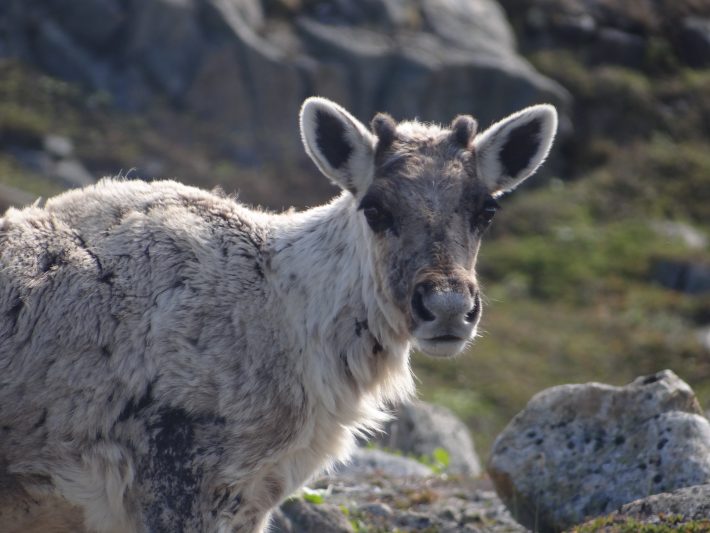Diego Ellis Soto and Kristy M. Ferraro win the Sidnie Manton Award
Today Journal of Animal Ecology (a British Ecological Society journal) has announced that Kristy M. Ferraro and Diego Ellis Soto, PhD candidates at Yale University, have been awarded the Sidnie Manton Award for the best Review or Long-term Study in Journal of Animal Ecology by an early career researcher.

Diego Ellis Soto and Kristy M. Ferraro have been awarded the Sidnie Manton Award, given every two years, for their paper ‘A methodological roadmap to quantify animal-vectored spatial ecosystem subsidies’.
The winning paper addresses the important, and relatively recent, realisation that animals can exert strong influences on ecosystems and connect them by acting as spatial nutrient vectors. The paper outlines the potential of combined new technologies and methods to advance the quantification of animal-vectored nutrient flows and increase the predictive power of meta-ecosystem theory.
This impressive paper is grounded in theory and provides a rich roadmap for future studies
Professor Nate Sanders, Senior Editor for Journal of Animal Ecology, said:
“This impressive paper is grounded in theory and provides a rich roadmap for future studies; it also highlights two case studies that illustrate the power of the approach. The editors at Journal of Animal Ecology feel that this paper by these early career ecologists and their colleagues will be an important guide for future research on how animals influence the structure and dynamics of ecosystems. ”
Kristy M. Ferraro is a PhD candidate at the Yale School of the Environment, while Diego Ellis Soto is a PhD candidate in Yale’s Department in Ecology and Evolutionary Biology. On their winning paper they said:
“Understanding where, when, and how much, animals distribute nutrients across ecosystem is challenging, as it relies on methods and concepts from a variety of scientific disciplines. To help guide ecologists, we developed a roadmap, demonstrating how to integrate the various necessary disciplines to conduct robust research to understand, quantify, and estimate animal contributions to nutrient cycles.”

Since publishing their winning paper, Diego and Kristy have both begun implementing the roadmap they’ve put forward on completely different ecosystems, contexts and species. Kristy is studying northern ungulates (caribou, elk, white-tailed deer, and mule deer) in northern regions, ranging from the boreal regions of Canada to the prairies of Yellowstone. Meanwhile Diego is studying the effects that Galapagos giant tortoises have on their Pacific island ecosystems.
On the importance of the Sidnie Manton Award, Dr Rob Salguero-Gómez, Commissioning Editor for Journal of Animal Ecology, said: “Animal Ecology is a robust, matured science. As such, synthesis of accumulated knowledge is as important as the representativity of the studies we carry out. These two key aspects fuel the very existence of our “Reviews” and “Long-term” studies. Our Sidnie Manton recognition is in place to highlight the excellent contributions to these two pillars of animal ecology by early career researchers”
The award is named in honour of Sidnie Manton, a highly regarded zoologist best known for her work on the functional morphology and evolution of arthropods, also known as simply “the high priestess of the arthropods”.
Be considered for the next Sidnie Manton Award
To be considered for the next Sidnie Manton award, submit a short proposal for a Review or Long-term Studies in Journal of Animal Ecology. Deadline 17th February 2023.
Applications will be assessed by the journal Editors and successful applicants will be invited to submit a manuscript to Journal of Animal Ecology. Submitted manuscripts will then go through our usual peer review process and, of those published, an overall winner will be selected.
Like what we stand for?
Support our mission and help develop the next generation of ecologists by donating to the British Ecological Society.